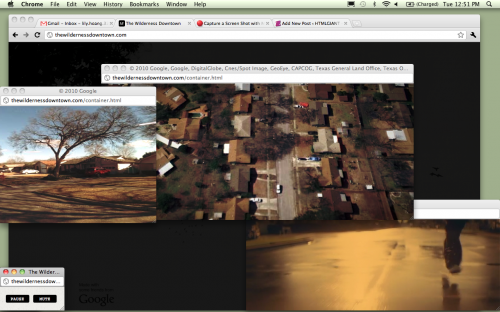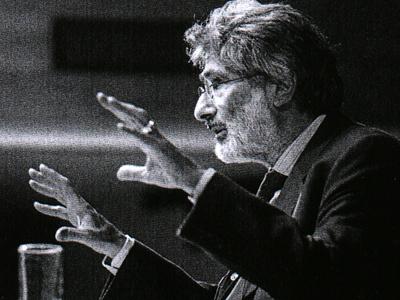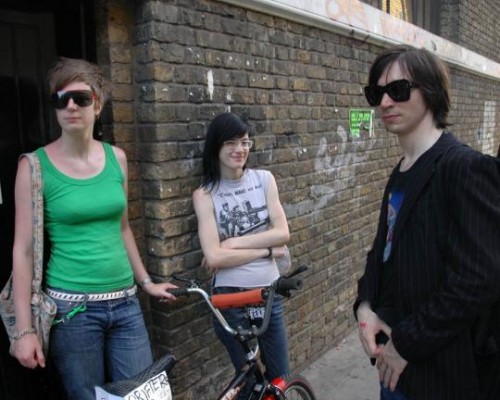Lily Hoang
https://literature.ucsd.edu/people/faculty/lhoang.html
Lily Hoang has published some books and won some awards. She is Director of the MFA in Writing at UC San Diego.
https://literature.ucsd.edu/people/faculty/lhoang.html
Lily Hoang has published some books and won some awards. She is Director of the MFA in Writing at UC San Diego.
Yesterday, I baked this apple pie.
I love baking. It’s a completely different experience than cooking or anything else, really. I don’t know exactly what it is, but baking is relieving. Maybe it’s the quasi-precision baking necessitates.
See: when I cook, I don’t follow any recipe. Even if I’m cooking something for the first time, I modify the recipe as I go, adding this spice or that, more cook time or less, substituting ingredients whimsically, etc.
But with baking, there are basic rules I have to follow. For instance, the amount of rising element (eggs, baking soda, baking powder, etc.) and flour can’t really change. I certainly can’t arbitrarily decide the temperature of the oven or how long the thing bakes. I like this.
I have known the inexorable sadness of pencils,
Neat in their boxes, dolor of pad and paper weight,
All the misery of manilla folders and mucilage,
Desolation in immaculate public places,
Lonely reception room, lavatory, switchboard,
The unalterable pathos of basin and pitcher,
Ritual of multigraph, paper-clip, comma,
Endless duplicaton of lives and objects.
And I have seen dust from the walls of institutions,
Finer than flour, alive, more dangerous than silica,
Sift, almost invisible, through long afternoons of tedium,
Dropping a fine film on nails and delicate eyebrows,
Glazing the pale hair, the duplicate grey standard faces.
How much time do you spend on the internet on an average day, and how much of that time is waste v. productive? (I took a sick-day today, thought I’d get a bunch of reading done. Instead, I wasted away in front of my laptop, just like any other day.)

Years ago, scores of indie nerds gathered in slobbery droolfests for the Arcade Fire’s Funeral. I know, I was one of them. The songs are anthems, more remniscent of the days of David Bowie and Queen than anything contemporary. Whereas they’re hardly cutting edge, it’s easy to find yourself singing along, enjoying, pumping your fists high up in solidarity.
A few weeks ago, my friend Susan Cahill (who will probably never read this, but if she Googles herself, she’ll find herself mentioned here, which is always a happy surprise) showed me the new music video for the Arcade Fire’s “We Used to Wait,” which she argued would revolutionize the way music videos are experienced. The video is personalized. Each person is invited to type in their childhood home address, and using the technology of Google Earth/Maps, you are bombarded with standard images of a person running with panoramic, 360 shots of your childhood home today, as it has morphed with the changing times. The images are seen simultaneously, each screen vying for your attention. It’s interactive. I mean: yes, it’s a pretty cool video.

I’m in the midst of writing research proposals for grants in a discipline I know next to nothing about, and so, naturally, I’m reading a lot. Naturally, I’m also procrastinating by writing this blog. (Brief back story: I’ve just started working on my PhD in Geography, which is only funny if you know me, because if you know me, you know I have no sense of direction. Up until five months ago, I thought Lake Champlain was a great lake. But of course, this has no real bearing on my Geography degree. I’m studying human geography. But either way, my training as a fiction writer has given me little insight, little preparation for grant writing.) The basic premise to my project is “imagined” geographies, that is, how second generation immigrants imagine a homeland they’ve never been to and how this imagining impacts development.
Naturally, considering the premise of my project, I’m reading folks like Benedict Anderson, Edward Said, Foucault (Jesus, people love Foucault), and Agamben.
I’m reading Said for probably the third or fourth time (each reading offers something new, of course), and this time, I found this gem:
Many travelers find themselves saying of an experience in a new country that it wasn’t what they expected, meaning that it wasn’t what a book said it would be. And of course many writers of travel books or guidebooks compose them in order to say that a country is like this, or better, that it is colorful, expensive, interesting, and so forth. The idea in either case is that people, places, and experiences can always be described by a book, so much so that the book (or text) acquires a greater authority, and use, even than the actuality it describes. (93)
Camille Paglia says:
If avant-garde is advanced guard, or vanguard, is Lady Gaga indeed avant-garde?
Forever, I thought solipsism was one’s belief that she is the center of the universe. This seemed to be a logical definition to me, “sol” after all means “sun.” Also, someone who is solipsistic is egotistical, duh. I mean: my definition made sense. To me, at least.

I started this post with something profound to say.
I was going to say: Logic would tell us that solipsism derives from ego, the inflation of self to the point that one believes she is the center of the universe, planets rotating around her; however, solipsism comes from a deep sense of insecurity and nothing else.
But I was wrong. Solipsism is not the belief that one is the center of this galaxy. Solipsism does not equate self with the sun, a star. No, solipsism is “the view or theory that self is the only object of real knowledge or the only thing really existent” (OED). It’s etymology does not come from “sol” meaning “sun” but from “solus” meaning “alone,” easy mistake, sure.
Which do you prefer: City, college town, or countryside?
I’ve always thought college towns would be ideal. Then, frosh week started and these purple people (literally, no metaphor at all) descended on my town. And reader: these are NOT the poor freshmen. That would be logical, maybe. No, these are the hazers. Needless to say, this place is a hazardly mess.

If it’s one thing hipsters hate, it’s being called a hipster. A couple weeks ago, I met this very nice hipster guy who told me a great story about how he was accused of being a hipster, and he was totally pissed, told the guy who called him a hipster that not all white guys who have tattoos are hipsters, which is true. However, a white guy with tattoos who wears vintage clothes who is vegan who rides a fixie, well, nope, the shoe doesn’t fit.
But the truth of it is that I’m guilty of calling people hipsters out of jealousy. I mean, I don’t have the style to be a hipster, nor do I have the money or general sensibility. My taste in music is about five years late, and that’s a generous estimation. I mean, I rarely intend to say the word in a derogatory way. It’s a compliment undercut with jealousy, which makes it sound like an insult, sure, but I’m not fooled.
Yesterday, Reynard started a conversation about the word hoodrat, which is funny in its own way, because the stated definition of hoodrat seemed to imply that a hoodrat is just a hipster of another color, maybe a specific geographic location based on socioeconomics.